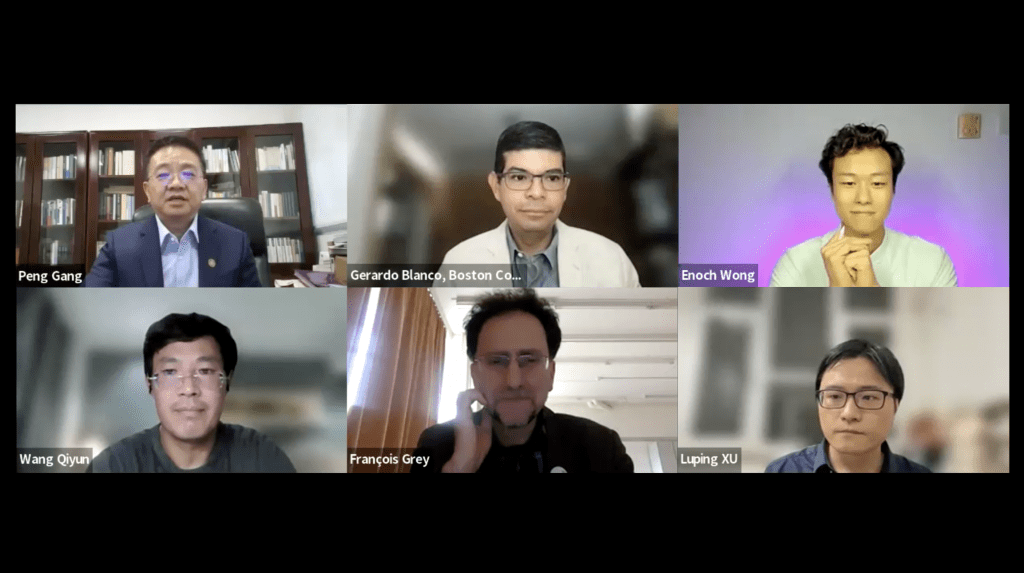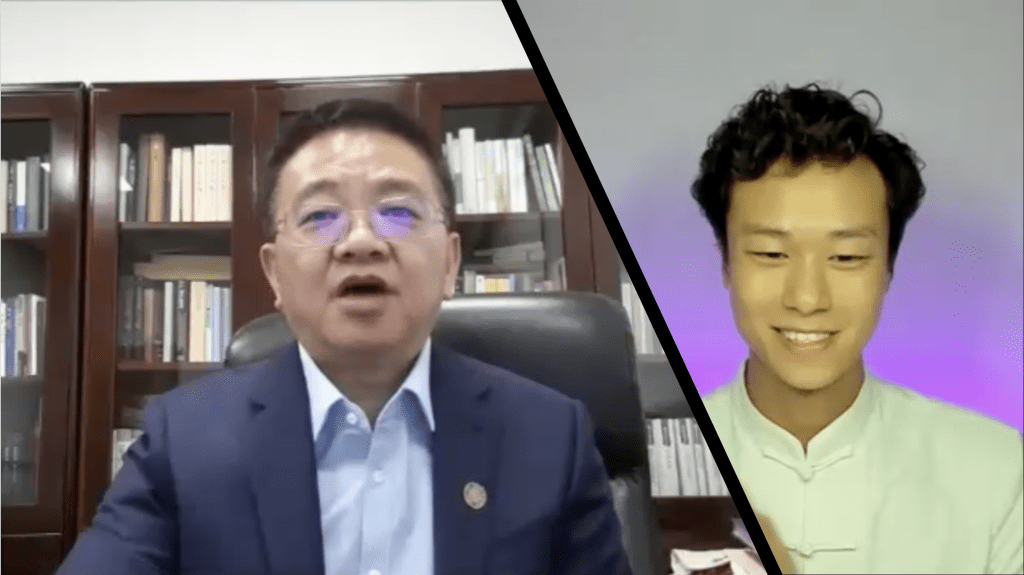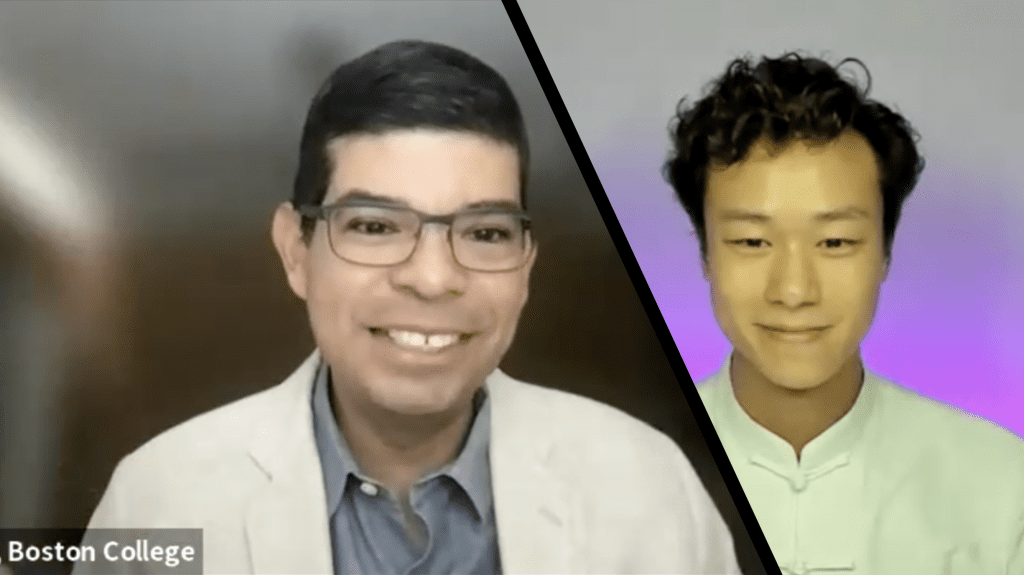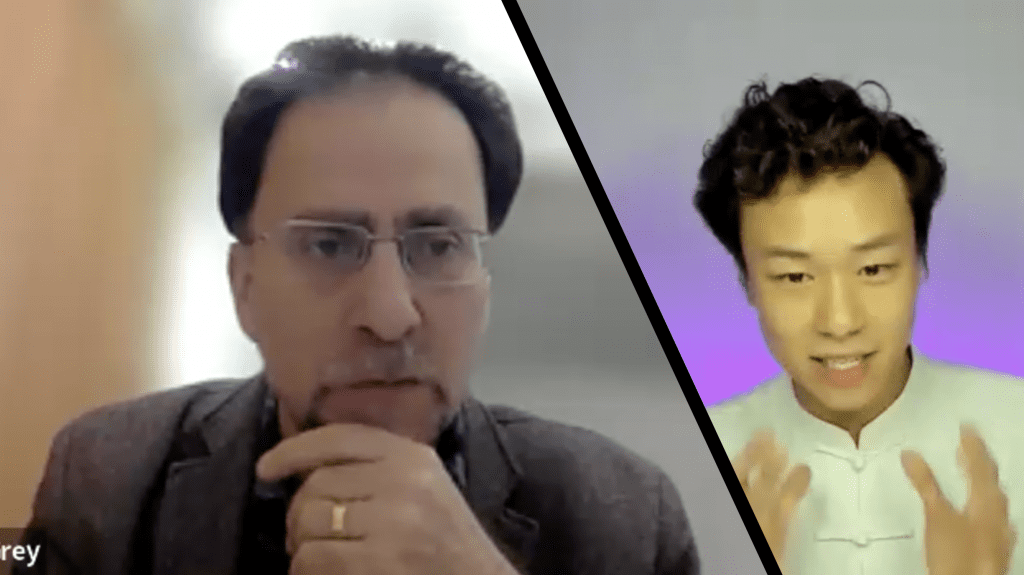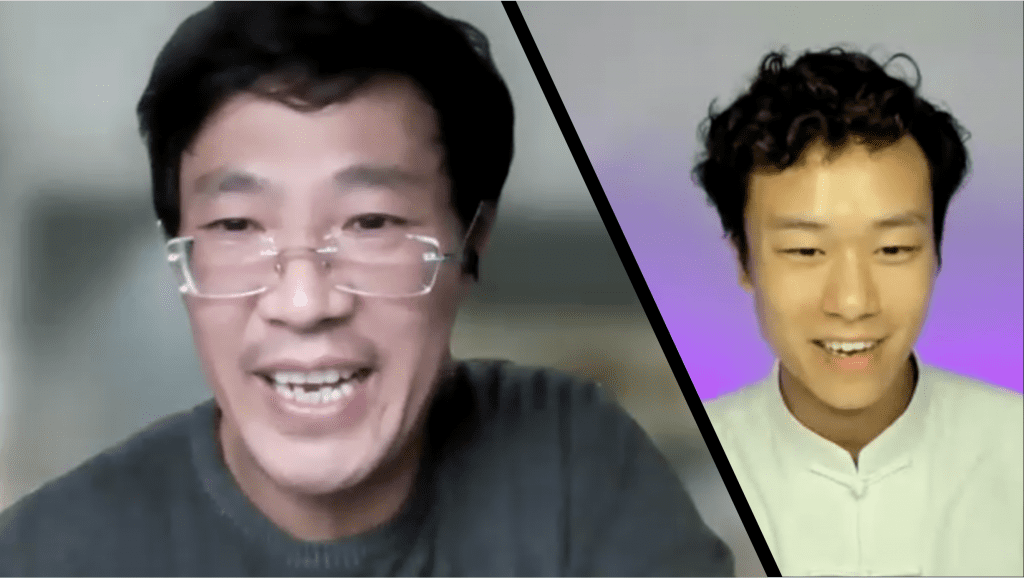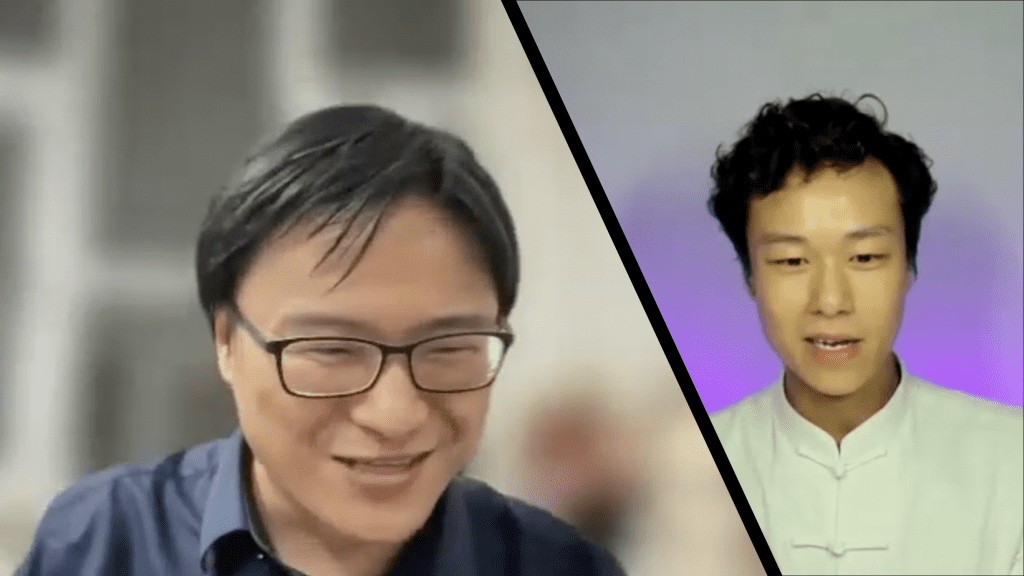- This event has passed.
OED 2023-1: Unraveling and Embracing AI in Higher Education
Subtheme 1:Artificial Intelligence and Higher Education Overview
May 16, 2023 @ 8:00 pm – 9:00 pm UTC+8
Organized by Global MOOC and Online Education Alliance, in collaboration with Tsinghua University, XuetangX, and UNESCO ICEE.
- Time: May 17, 2023; 08:00-09:00 (Boston); 14:00-15:00 (Geneve); 20:00-21:00 (Singapore, Beijing)
Link for live stream (and playback, which will be accessible within 48 hours): https://www.xuetangx.com/live/live20230515m002intl/live20230515m002/16741468/34631590
Recap articles
Online Education Dialogue as one of the flagship activities of the Global MOOC and Online Education Alliance (GMA), aims to promote the digital transformation of global higher education, share the latest developments in online education, and enhance the capacity building of people involved in higher education digitalization worldwide.
“Navigating the AI-Driven Digital Transformation of Higher Education” is the theme of the Online Education Dialogue 2023. Focusing on the trends and challenges of AI-enabled higher education, raising global awareness of the importance of AI in higher education, sharing positive practices of digital transformation of higher education driven by AI, based on building an online global learning community and promoting international cooperation of higher education institutions in exploring the building of a global community with a shared future.
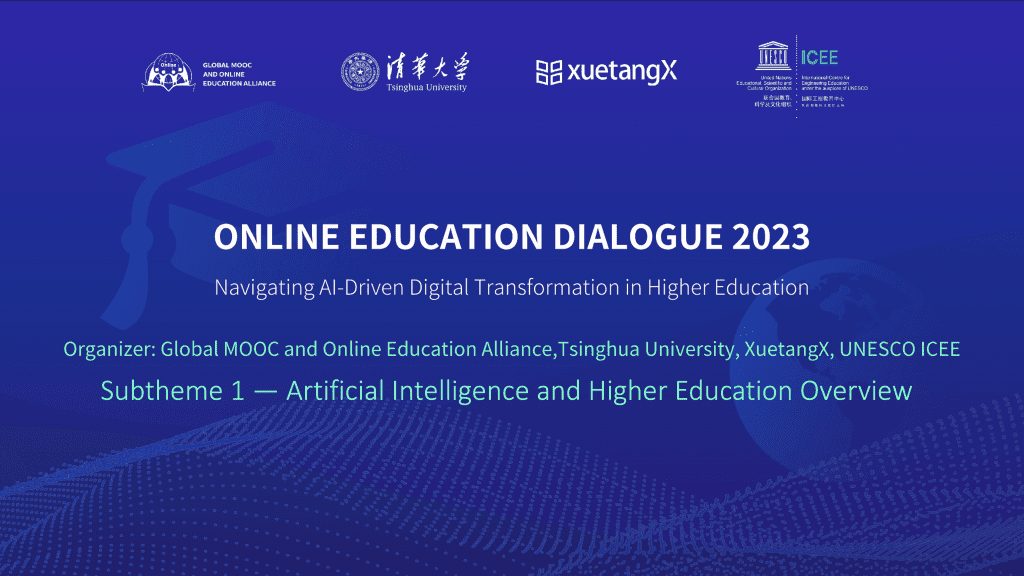
Artificial Intelligence and Higher Education Overview
The first session titled “Unraveling and Embracing AI in Higher Education: Practices, Opportunities, Challenges, and Future”, will delve into the heart of the intersection between artificial intelligence and higher education. The session will present an overview of the current state of AI in higher education, shedding light on key developments and trends that are shaping the future of learning. This discourse goes beyond mere technological adoption, delving into the critical exploration of both potential benefits and possible drawbacks of AI in higher education. We aim to facilitate an insightful conversation around identifying key challenges and best practices for integrating AI into higher education systems. Looking ahead, this session will also invite attendees to envision the future of higher education in an AI-driven context, catalyzing a collective reflection on the formation of the AI-driven university of tomorrow.
Agenda & Speaker Bio
Opening & Welcoming Remarks
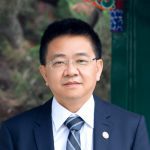
PENG Gang
Vice President and Provost, Tsinghua University;
Chair of Executive Committee, Global MOOC and Online Education Alliance
Keynotes and panel discussion
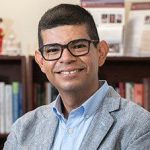
Gerardo L. Blanco
Academic Director, Center for International Higher Education, Boston College
Dr. Gerardo Blanco is associate professor of Higher Education, and academic director of the Center for International Higher Education at Boston College. He is also a Fulbright Specialist, and advisor for programs and global initiatives at the American Council on Education. His research explores the intersections of quality and internationalization in higher education. An interdisciplinary scholar, his research has been published in top international journals in the fields of Higher Education and Comparative Education.
Gerardo has held leadership roles in the Comparative and International Education Society (CIES), and the Association for the Study of Higher Education’s Council for International Higher Education and serves on several advisory and editorial boards. In 2017, he received the “Best Research Article Award” from the Comparative & International Education Society’s Higher Education SIG. In 2014 and 2020, his work received honorable mentions from the same organization. Dr. Blanco is the author (with Catherine Marshall and Gretchen B. Rossman) of Designing Qualitative Research 7th edition.

Francois Grey
Professor, Information Science Institute, University of Geneva
Francois Grey is a physicist with a background in nanotechnology, and he has a passion for citizen science. He also has extensive experience in science management, teaching and communication in various countries including the United States, China, Japan, Germany, Denmark, and Switzerland. Over the past decade, he has managed the development of a series of online citizen science projects in a wide range of research fields, beginning with the launch of LHC@home in 2004 while he was a manager at CERN.
In 2009, Prof. Grey established a partnership for citizen science between CERN, the UN Institute for Training and Research (UNITAR), and the University of Geneva, which is now known as Citizen Cyberlab. As an invited professor at the Centre Universitaire d’Informatique (CUI) of the University of Geneva since 2014, he coordinates Citizen Cyberlab, manages the development of technologies for crowdsourced research, explores the broader impact of citizen science on society, and promotes public participation in science through hands-on events. He also teaches courses on Open Science and Citizen Science at both the bachelor’s and master’s level.
Since 2016, he has been serving as the Director of the Geneva Tsinghua Initiative, a comprehensive education programme for the UN Sustainable Development Goals. From 2016 to 2018, he served as the Director of Digital Strategy for the University of Geneva.

WANG Qiyun
Associate Professor (Tenured), Learning Sciences and Assessment Academic Group, National Institute of Education (NIE), Nanyang Technological University (NTU), Singapore
Dr. Wang Qiyun is a tenured Associate Professor of the Academic Group of Learning Science and Assessment (LSA). He obtained his PhD from the University of Twente, the Netherlands in 2001, and Master’s and Bachelor degrees at East China Normal University, Shanghai. He is now the Programme Leader of PhD and Master by Research.
His research areas include blended learning, educational design-based research, and technology-enhanced learning environment design. He has been actively involved in many educational research projects, and currently is a PI of the funded research project “Promoting and Monitoring the Cognitive Engagement of Online Students in the Blended Synchronous Learning Environment (2021-2024).
He has published more than 30 research articles in SSCI-indexed journals and edited 4 academic books and supervised 2 PhD/EdD graduates. He is the Editor-in-Chief of International Journal of Social Media and Interactive Learning Environments and an Associate Editor of International Journal of Continuing Engineering and Life-Long Learning. He is also serving as an editorial board member and a reviewer of several international journals, and a guest editor for more than 10 special issues in international journals. He has been a conference executive chair and cub-conference chair of many international conferences.
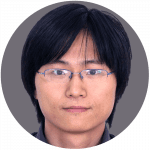
XU Luping
Associate professor, Vice Dean of Xingjian College, Tsinghua University
Prof. Luping Xu is the vice dean of Xingjian College and the deputy director of the Center for Nano and Micro Mechanics (CNMM) of Tsinghua University. Prof. Xu received his B.Sc. in physics and Ph.D. in systems biology from Peking University. After Post-Doc research at the Institut National de la Santé Et de la Recherche Médicale (INSERM) and Université Paris Descartes, France, he joined the school of aerospace engineering of Tsinghua University as a faculty member in 2012. The major research interests of Prof. Xu is to study the emergence and dynamics of innovation in biological, physical, informational and social systems using interdisciplinary and open science methods. Prof. Xu is deeply motivated in exploring new frontier of education and has contributed to a series of education innovation programs in Tsinghua University, including the reform of Tsien’s Excellence in Engineering Program (TEEP, 2012), the construction of Open Wisdom Lab (OWL,2012) and the initiation of Franco-Chinese Open FIESTA program (2015). In 2020, Prof. Luping Xu co-founded Shenzhen X-institute, a “boundless university” platform for the cultivation of next generation innovators.

Moderator: Enoch Wong
Assistant Secretary-General, Global MOOC and Online Education Alliance; Senior Advisor (Online Education & International Cooperation), Tsinghua University


